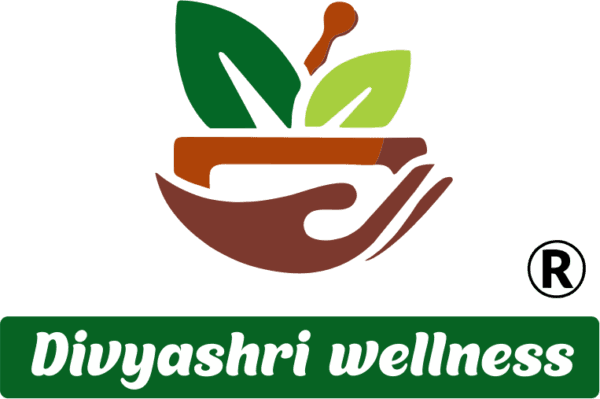Addiction is a complex and deeply personal challenge that impacts millions of people worldwide. It’s not simply a habit or a lack of willpower—it’s a condition that rewires the brain and takes a toll on physical, emotional, and social well-being. Recognizing addiction in oneself or a loved one can be difficult but is essential for taking the first steps toward recovery.
In this blog, we’ll explore the nature of addiction, its different forms, what drives it, and how to spot the signs early. By understanding addiction better, we can reduce stigma and encourage a supportive environment for those in need of help.
Understanding Addiction: More Than a Habit
Addiction is a chronic condition characterized by compulsive behaviors or substance use, even when it causes harm. While the word is often associated with drugs or alcohol, addiction can also extend to behaviors like gambling, gaming, or even excessive social media use.
At the root of fixation lies a disruption in the brain’s reward system. When someone engages in a pleasurable activity or uses a substance, their brain releases dopamine, a chemical that makes them feel good. Over time, repeated exposure to this “reward” can change the brain’s chemistry, making the person crave more to achieve the same effect. These changes create a cycle of dependency that can feel impossible to break.
Types of Addiction
Addiction generally falls into two main categories: substance addiction and behavioral addiction.
1. Substance Addiction
Substance addiction refers to dependence on harmful substances that alter the mind or body. Examples include:
- Alcohol Addiction: Known as alcoholism, it’s one of the most common forms of addiction.
- Drug Addiction: This includes both illicit drugs (like heroin or cocaine) and prescription medications (like painkillers or sedatives).
- Nicotine Addiction: A dependence on tobacco products, often underestimated due to its social acceptance.
2. Behavioral Addiction
Behavioral fixation don’t involve a substance but revolve around compulsive behaviors. Examples include:
- Gambling Addiction: A relentless urge to gamble, despite financial and emotional consequences.
- Technology Addiction: Excessive use of smartphones, gaming, or social media platforms.
- Food Addiction: Overeating, particularly unhealthy foods, to cope with emotional stress.
Both types of addiction share common elements, such as cravings, loss of control, and negative consequences.
How Does Addiction Develop?
fixation doesn’t occur overnight. It’s a gradual process influenced by multiple factors, including biology, psychology, and environment.
1. Biological Factors
- Genetics: A family history of addiction increases the likelihood of developing the condition.
- Brain Chemistry: Some people are naturally predisposed to fixation due to low dopamine levels or other neurological differences.
2. Psychological Factors
- Stress and Trauma: Chronic stress or unresolved trauma can push people toward substances or behaviors as a coping mechanism.
- Mental Health Conditions: Anxiety, depression, and PTSD often coexist with addiction, creating a vicious cycle.
3. Environmental Factors
- Peer Influence: Being surrounded by people who engage in addictive behaviors can normalize such habits.
- Availability: Easy access to substances or addictive activities can accelerate the problem.
- Upbringing: Growing up in a chaotic or neglectful household can contribute to early experimentation with substances or behaviors.
Spotting the Signs of Addiction
Recognizing addiction is not always straightforward. It often hides behind denial, secrecy, and shame. However, there are physical, emotional, and behavioral indicators that can help you spot it early.
Physical Signs
- Noticeable weight fluctuations (sudden loss or gain).
- Bloodshot eyes, dilated pupils, or a constantly tired appearance.
- Poor hygiene or neglect of personal grooming.
- Unexplained injuries or frequent illnesses.
Behavioral Signs
- Secrecy: Hiding activities, lying about whereabouts, or making excuses for unusual behavior.
- Decline in Performance: Poor performance at work or school and neglect of responsibilities.
- Social Isolation: Withdrawing from friends and family to spend time engaging in addictive behavior.
- Risky Actions: Driving under the influence, legal troubles, or other reckless decisions.
Emotional Signs
- Frequent mood swings, from euphoria to irritability or anger.
- Increased anxiety, paranoia, or depression.
- Defensiveness or hostility when questioned about behavior.
How to Recognize Addiction in Yourself
Self-awareness is a powerful first step toward recovery. Ask yourself:
- Do I struggle to control how much or how often I engage in a certain behavior or substance use?
- Have I tried to quit but failed multiple times?
- Do I feel anxious, irritable, or uncomfortable when I don’t have access to this behavior or substance?
- Has it affected my relationships, work, or overall well-being?
- Am I spending excessive time, energy, or money on this behavior or substance?
If the answer to any of these questions is “yes,” it may be time to seek help.
How to Spot Addiction in a Loved One
Watching someone you care about struggle with addiction can be heartbreaking. While each person’s experience is unique, these signs are often red flags:
- Changes in Social Circles: Spending time with new, often suspicious acquaintances while distancing from family or long-time friends.
- Financial Problems: Unexplained expenses, borrowing money, or financial instability.
- Physical Clues: Discovering items like empty bottles, drug paraphernalia, or hidden stashes.
- Emotional Outbursts: Increased defensiveness, anger, or tearfulness when confronted.
Approaching the subject with compassion, rather than judgment, is critical for encouraging them to seek help.
Stages of Addiction
Understanding the progression of addiction can help you intervene early. The stages include:
- Experimentation: Trying a substance or activity out of curiosity or social pressure.
- Regular Use: Establishing a routine of use, though it may not yet dominate life.
- Risky Use: Behavior starts interfering with responsibilities or relationships.
- Dependence: The individual experiences cravings, tolerance, and withdrawal symptoms.
- Addiction: Compulsive use takes over, often with severe consequences for health, finances, and relationships.
The Role of Denial in Addiction
One of the biggest challenges in addressing nasha mukti is denial. People often downplay their problem, saying things like:
- “I can quit whenever I want.”
- “It’s just a phase.”
- “Everyone does this; it’s normal.”
Overcoming denial requires self-reflection, support from loved ones, and sometimes professional intervention.
Breaking the Stigma Around Addiction
Despite being recognized as a medical condition, addiction still carries a stigma that prevents many from seeking help. This judgmental attitude often portrays addiction as a moral failing rather than a health issue. By promoting education and empathy, we can encourage more people to come forward without fear of judgment.
Treatment Options for Addiction
Recovering from nasha mukti plus is a journey that requires commitment and the right support. Here are the most effective treatment options:
1. Detoxification
Detox is the first step in recovery, where the body eliminates the substance. This process can cause withdrawal symptoms and is best done under medical supervision.
2. Therapy and Counseling
- Cognitive Behavioral Therapy (CBT): Helps identify triggers and replace harmful thought patterns with healthier ones.
- Family Therapy: Strengthens relationships and addresses underlying family dynamics that may contribute to addiction.
3. Medication
For certain fixation, such as nicotine or opioids, medications can ease withdrawal symptoms and reduce cravings.
4. Support Groups
Groups like Alcoholics Anonymous (AA) or SMART Recovery provide a community of people facing similar challenges, offering support and accountability.
5. Holistic Approaches
Meditation, yoga, and mindfulness practices can improve emotional well-being and reduce stress during recovery.
When to Seek Professional Help
Professional help should be sought when:
- There are repeated failed attempts to quit.
- Health problems, both physical and mental, worsen.
- Relationships, work, or finances are severely impacted.
- There’s a risk of harm to oneself or others.
Supporting a Loved One in Recovery
Helping someone recover from addiction requires patience and understanding:
- Approach conversations with empathy, not criticism.
- Encourage them to seek professional help and support them through the process.
- Avoid enabling behaviors, like lending money to fund their addiction.
- Celebrate small victories in their recovery journey.
Conclusion
Addiction is a challenging and often misunderstood condition, but recovery is always possible with the right support and treatment. Understanding what addiction looks like—and how to recognize it—empowers us to take timely action, either for ourselves or a loved one.
If you or someone you know is struggling with nasha mukti, don’t hesitate to reach out for help. Support groups, therapists, and healthcare providers are ready to guide you toward a healthier, addiction-free life.

